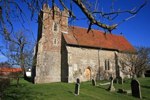What are Fresh Expressions of Church?
 If people have an image of the Church of England, it is generally of an elderly, genteel and sleepy church, centering on ancient, decaying buildings in delightful rural settings.
If people have an image of the Church of England, it is generally of an elderly, genteel and sleepy church, centering on ancient, decaying buildings in delightful rural settings.
Although those churches certainly exist, the full reality is very different. I think this came home to me some years ago, when two people independently told me that the Church of England had been planting new congregations at the rate of one every two weeks for the previous ten years. This was news to me, as maybe it is to you. A church report, Breaking New Ground (1994) dealt with this new reality, and the opportunities and challenges it brought.
– See the “official” definition from Fresh Expressions, UK
Mission Shaped Church
Some of these new churches, however, did not fit the mould of what one might traditionally think of as an Anglican church. To give one of the more famous examples, how many Goths do you know who go to church? Probably not a lot. (OK, maybe I should have asked first of all how many Goths you know.) Yet there is a thriving church of Goths in Cambridge. Or what about skateboarders? The Church of England has a church of skateboarders.
 Once again, a church report marked this new transition: Mission Shaped Church (2004), written by a group headed by Bishop Graham Cray. This not only described some of the “fresh expressions of church” which were springing up all over the country, but talked about the theology of such things, and gave encouragement to those who wanted to experiment with forms of church that would reach those presently “unchurched.”
Once again, a church report marked this new transition: Mission Shaped Church (2004), written by a group headed by Bishop Graham Cray. This not only described some of the “fresh expressions of church” which were springing up all over the country, but talked about the theology of such things, and gave encouragement to those who wanted to experiment with forms of church that would reach those presently “unchurched.”
Fresh impetus was given to this movement by the Archbishop of Canterbury, who set up an organization called “Fresh Expressions”, under the leadership of the Rev. Dr. Steven Croft, based in Oxford. Fresh Expressions has a website, which among other things provides a place for people to “register” their “fresh expression of church.” Presently there are some 650 registered, from all over Britain. Fresh Expressions also offers training in Mission Shaped Ministry to those who want to learn how to “do church” in a way that relates more closely to the culture.
So is this just the latest “flavour of the month” ministry gimmick, which will pass like so many more within a year or two? Rowan Williams thinks not: he sees it as the genuine spiritual response of a mission-minded church to the changing culture around it:
Essentially the Fresh Expressions programme is not simply about a kind of scattered set of experiments . . . it’s about that gradual, but I think inexorable, shift, the whole culture of our church that has been going on in the last few years, and which will undoubtedly continue to grow and develop.
(General Synod, February 2007)
Changing structures
One sign that this is a change that will last has been “a principled and careful loosening of structures” (Rowan Williams) in order to provide new wineskins for the new wine. For example, it is now possible to be assessed, training and ordained specifically to “pioneer ministries.” In other words, you may not have the gifts or the interests to pastor a traditional Anglican church, but the church still acknowledges that it needs you! Or again, General Synod recently approved what is called a “Bishop’s Mission Order” whereby a bishop can give formal approval to a fresh expression of church in his diocese which does not fit traditional ministry categories, and may cross traditional parish boundaries (a bigger issue in the UK than here). In fact, Steve Croft says one of the symbols of his ministry is a can of WD40—to help loosen up traditional procedures to make possible more of these fresh expressions.
What can the Canadian Church learn from this?
 Canada already has its own share of fresh expressions of church—not as many as the UK, granted, but significant nonetheless. Up to now, however, nobody has connected the dots and pointed out that these are the same kind of thing.
Canada already has its own share of fresh expressions of church—not as many as the UK, granted, but significant nonetheless. Up to now, however, nobody has connected the dots and pointed out that these are the same kind of thing.
You can read about some examples below, or see a complete listing on our web site’s Canadian Fresh Expressions List. At that page, if you are involved in what might be considered a “fresh expression of church”, let us know, and we will post your link.
- St. Benedict’s Table (Winnipeg)
- Messy Church (St. John’s NF)
- Emerge (Montreal)
- Church on Tap (Port Colborne ON)
Other denominations are doing this kind of thing as well, and we need to learn from each other. (Fresh Expressions in England is actually a joint project of the Anglican and Methodist churches.) Check out The Freeway, a Salvation Army church plant in Hamilton ON, for example.
More work needs to be done, however.
1. One foundation of the Fresh Expressions movement has been research into what is going on religiously and spiritually in Britain. (It is on this basis, for example, that they conclude that 40% of the population are unchurched: that is, they have never in their lives had significant contact with a church.) What are the Canadian realities? Undoubtedly they would be the same in some ways, but different in others. If Fresh Expressions is a response to a changing culture, we have to know how Canadian culture is changing. And research such as Reg Bibby’s could help us to understand that.
2. We need also to network people who are either engaged in fresh expressions of church, or would like to do so. This can happen through websites and blogs, of course. People interested in connecting with the unchurched are also beginning to gather each year at Vital Church Planting, the Anglican Church Planting conference in Toronto. It was here that the seeds of Messy Church were sown in 2007, and here that George Lings, a Fresh Expressions leader in Britain, inspired and challenged us this year. We are already hoping to bring Steve Croft and Sally Gaze (a leader in rural fresh expressions) to the 2009 conference.
3. Nick Brotherwood and Tim Smart from the Diocese of Montreal have begun to do Vision Days (using Fresh Expressions materials) in their area, and I suspect before long similar events will be happening in other areas.
This is an exciting development, and many people have a sense that, in the midst of all the troubles in the Anglican Church, the Holy Spirit is still at work. Watch this space for further news!
What is a fresh expression of church?
“A fresh expression of church is a form of church for our changing culture, established primarily for the benefit of people who are not yet members of any church. It will come into being through principles of listening, service, incarnational mission and making disciples. It will have the potential to become a mature expression of church shaped by the gospel and the enduring marks of the church and for its cultural context.” – From Fresh Expressions, UK
More Information on Fresh Expressions
 Canadian Fresh Expressions List – Please click here to see our brand new list of Canadian Fresh Expressions of Church and, if you are involved in what might be considered a “fresh expression of church”, to post your link.
Canadian Fresh Expressions List – Please click here to see our brand new list of Canadian Fresh Expressions of Church and, if you are involved in what might be considered a “fresh expression of church”, to post your link.
Links:

